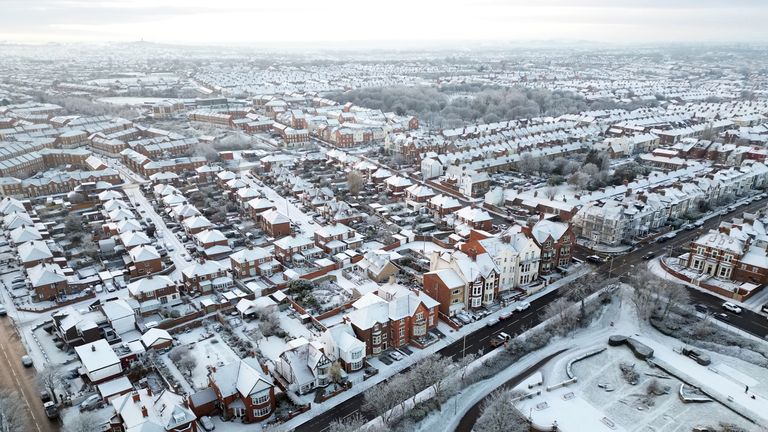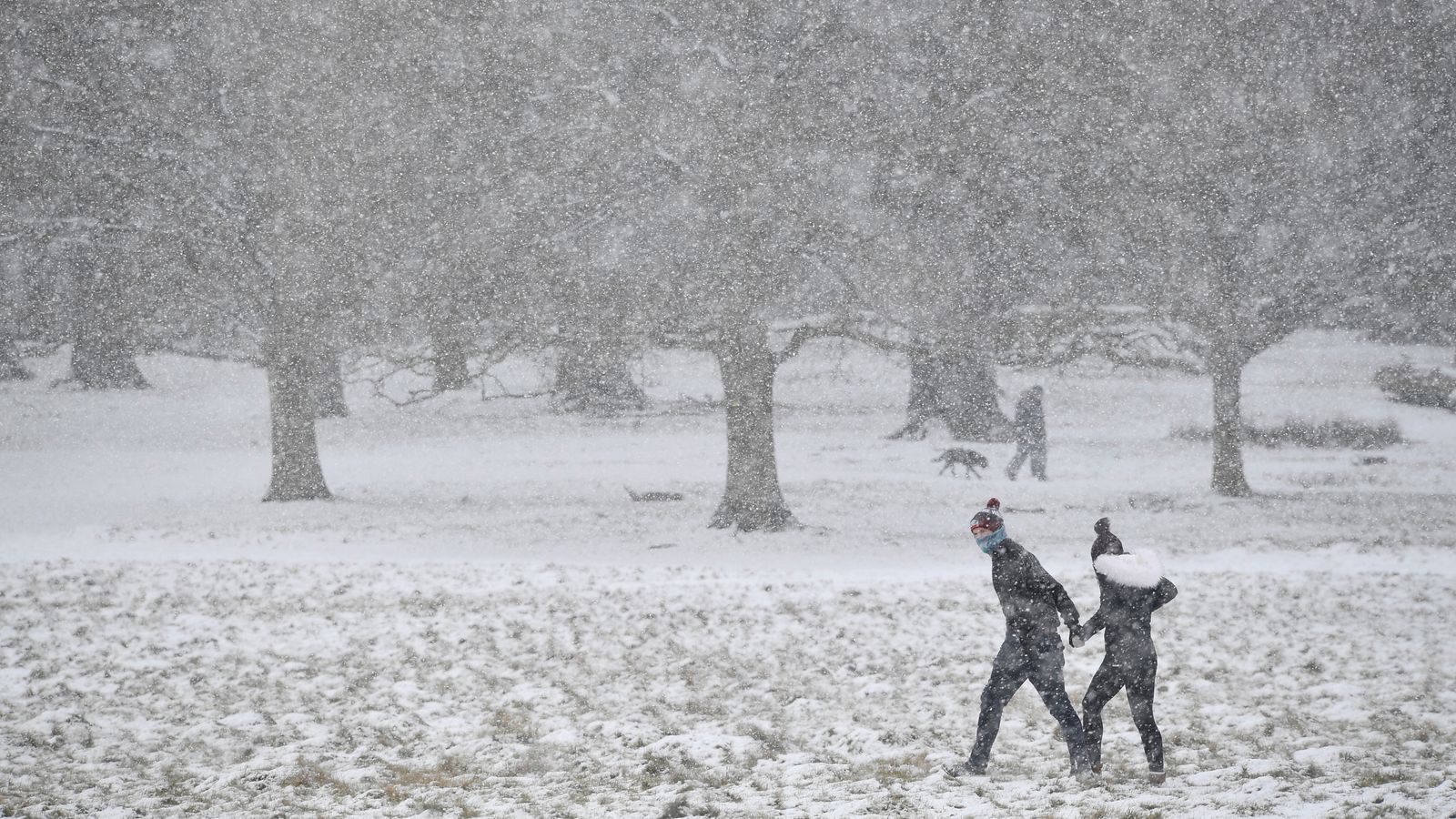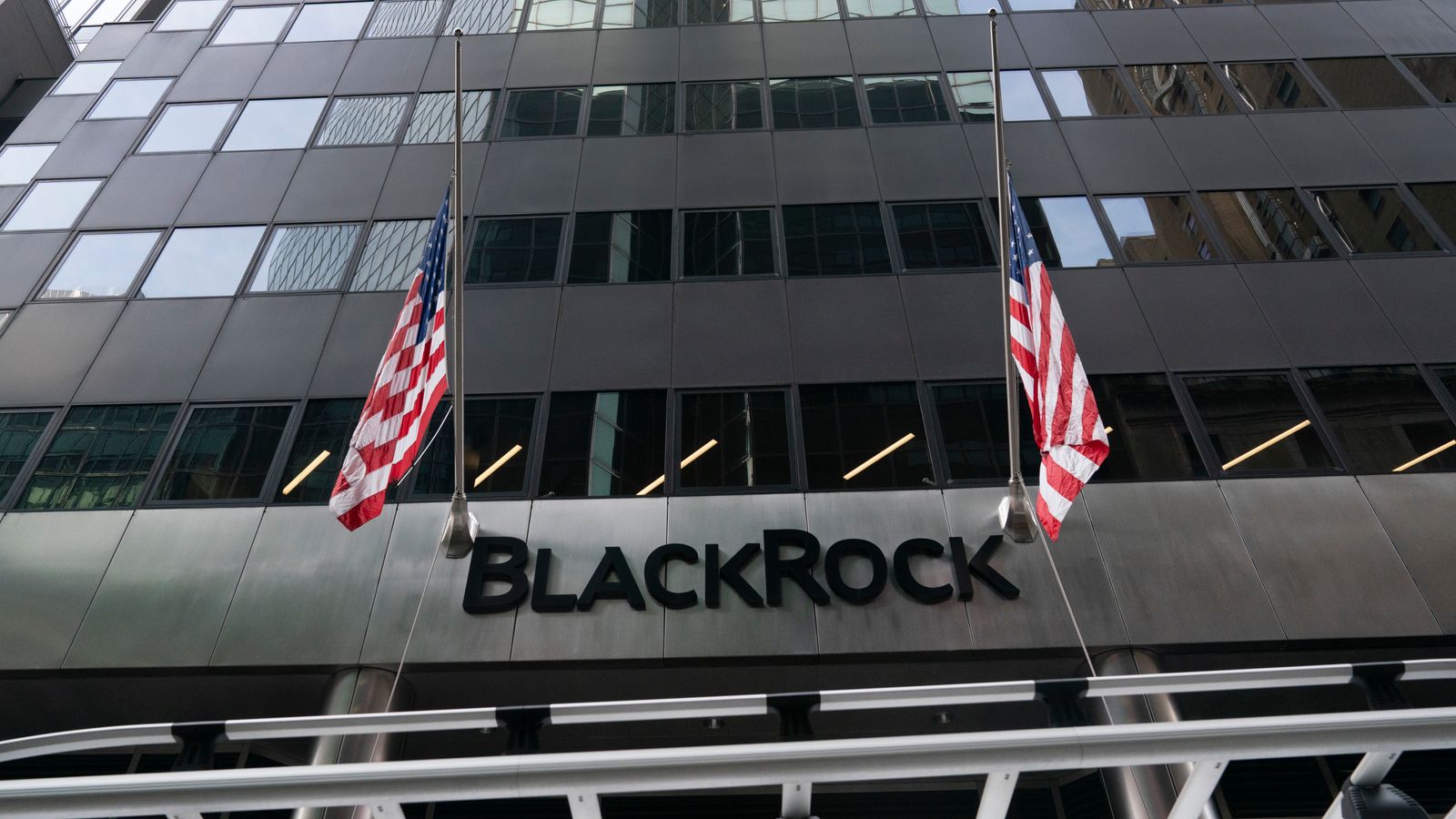
This winter parts of the UK have already been hit by freezing temperatures and heavy snow – but a weather event expected to take place in the coming days has sparked fears the country could soon face an icy blast.
A major sudden stratospheric warming (SSW) event is “now likely”, according to forecasters – and could bring the return of bitterly cold conditions before spring.
Sky News weather producer Chris England says “sudden stratospheric warmings can lead to colder conditions over parts of the Northern Hemisphere through their interaction with the jet stream”.
But he warned these high pressure systems which are formed feeding cold air down from the north and east are not guaranteed.
What is a sudden stratospheric warming event?
SSW describes an event when “rapid warming occurs high up in the stratosphere”, according to the Met Office, but it can have consequences in our weather down on the surface in the weeks that follow.
This rapid warming in the stratosphere – between around 10km and 50km above the earth’s surface – is so high we don’t feel it on the ground.
The event follows a weakening of winds in what’s called the stratospheric polar vortex, high over the Arctic.
“The cold air then descends very rapidly in the polar vortex and this causes the temperature in the stratosphere to rise very rapidly, as much as 50C over only a few days; hence the term sudden stratospheric warming,” the Met Office says.
This event can impact the shape of the jet stream as the cold air sinks – sometimes leading to a long spell of dry, cold weather across the UK and northern Europe.
Get the latest 5-day weather forecast where you are
Does it happen every year and will it happen this year?
SSW doesn’t happen every year, and when it does, it doesn’t always influence our weather.
According to Prof Adam Scaife, head of long-range forecasting at the Met Office, “there is now over 80% chance of a major SSW occurring” this year.
The UK has been hit by extreme winter snow events in recent years, for example the so-called Beast from the East – which occurred in 2018.
But just because much of Britain was coated in snow back then due to a link with a SSW event – it doesn’t mean it will happen again this year.
What could it mean for the UK’s weather and when?
As mentioned, a major SSW event can be linked to freezing temperatures such as the ones seen in 2018 – but there are no guarantees.
Prof Scaife says: “Although the impact will become clearer nearer the time, any effect on UK weather is most likely to occur in late February and March.”
Sky’s England adds: “Other factors such as the distribution of warm and cold areas across the globe also have an influence.
“When they do develop they may push the cold weather across other parts of the world, e.g. China, North America, rather than Europe.
“And even when Europe is impacted, relatively small changes may mean that central and eastern Europe bear the brunt of the cold.”
Read more from Sky News:
Seven of the extreme weather records broken in 2022
Cold weather alert across England as ‘snow moon’ set to delight sky-gazers
So can the UK bank on heavy snow falling in the next few weeks?
In short, no.
Unfortunately, it’s too early to tell how weather forecasts will change following a SSW event.
Current forecasts “are not showing any major cold snap for the UK as a result of the current SSW”, England says.
“That doesn’t mean we won’t have cold spells – it’s cold now, after all, but that’s due to the normal progression of high and low pressure systems and nothing to do with an SSW.”












